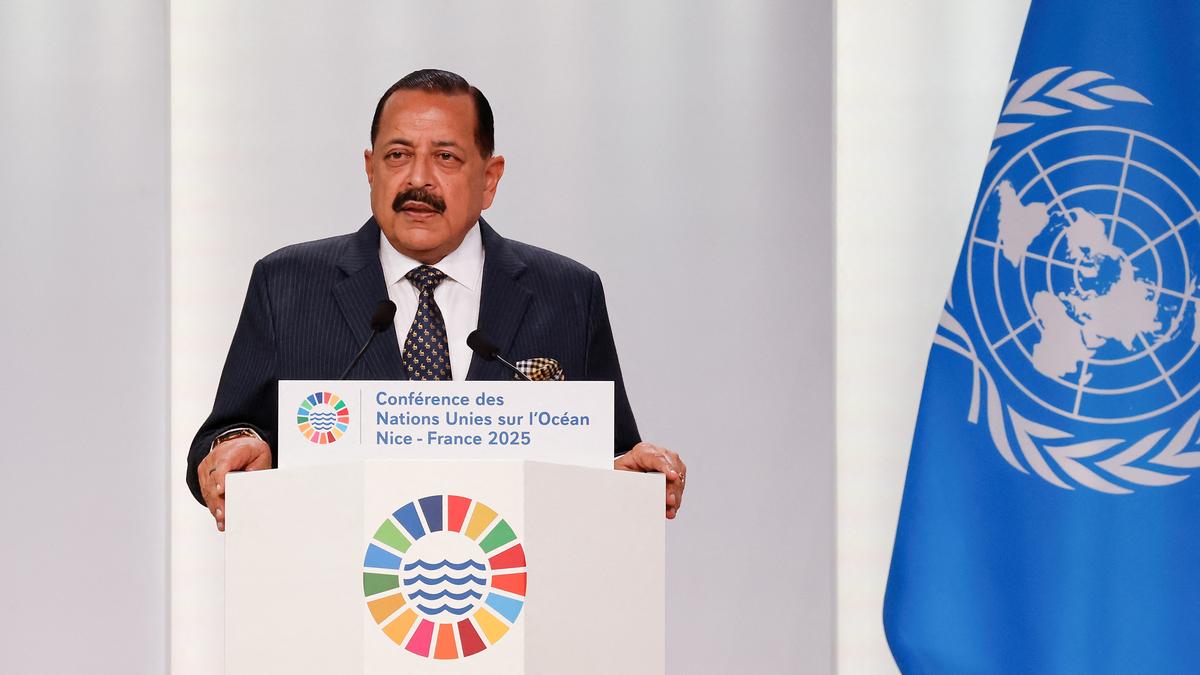India’s Minister of Science and Technology and Minister of Earth Sciences, Jitendra Singh, addresses the audience during a plenary session on the second day of the United Nations Ocean Conference (UNOC3), in the French Riviera city of Nice, on June 10, 2025.
| Photo Credit: AFP
India is unlikely to ratify the Biodiversity Beyond National Jurisdiction (BBNJ) agreement—also known informally as the ‘High Seas Treaty’—at the ongoing United Nations Ocean Conference in Nice, France, sources indicated to The Hindu.
Though India signed the agreement in September 2024, formal ratification is pending. Before proceeding, the government is required to amend certain legislations, including the Biological Diversity Act, it is learnt. “This will probably be taken up after the Monsoon Session (July 12–August 12) and needs to be passed in Parliament. There are other issues that also need to be sorted out,” a person familiar with the negotiations said.
As of June 10, 49 countries have ratified the treaty. Once 60 countries complete the process, the treaty will enter into legal force.
Union Minister for Science and Technology Jitendra Singh, who is representing India at the conference, which continues until June 13, stated in France that India was in the “process of ratifying the treaty.”

One of the most contentious aspects of the BBNJ is the sharing of resources. The high seas, lying beyond the exclusive economic zones (EEZ) of nations, are not under the jurisdiction of any single country. These areas are known to harbour unique and exotic marine life. While commercial extraction remains technically challenging, a clear mechanism for equitable sharing of potential economic benefits is yet to be finalised.
In addition to resource sharing, the BBNJ agreement seeks to address long-term conservation and sustainable use of marine biodiversity in areas beyond national jurisdiction. It lays out mechanisms for environmental impact assessments, area-based management tools, and enhanced international cooperation for ocean governance.
In his address on June 10, Dr. Singh highlighted India’s progress on Samudrayaan, the country’s manned submersible mission, which is expected to reach ocean depths of up to 6,000 metres and is slated for a trial dive in 2026. He also referred to India’s nationwide ban on single-use plastics and highlighted more than $80 billion in Blue Economy investments.
India reiterated its call for a legally binding Global Plastics Treaty and launched the ‘SAHAV’ digital ocean data portal at the conference, underscoring its growing leadership in global marine conservation efforts.
The conference is being co-hosted by France and Costa Rica under the theme, “Accelerating Action and Mobilizing All Actors to Conserve and Sustainably Use the Ocean.”
Published – June 11, 2025 06:36 pm IST
